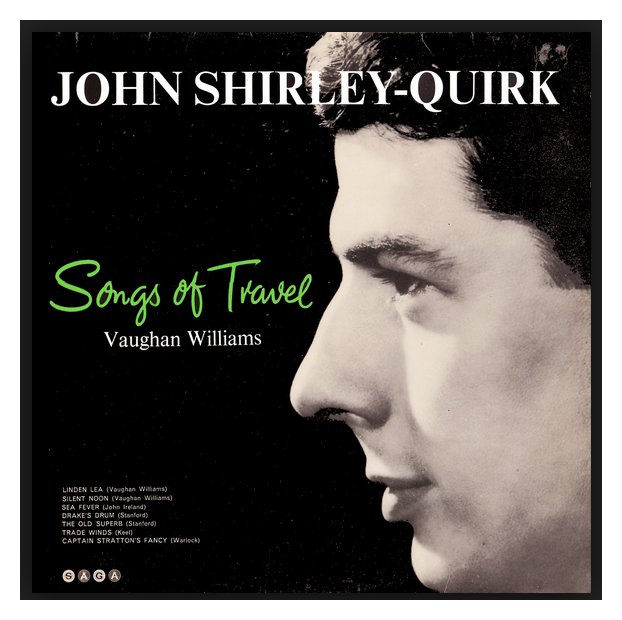

John Shirley-Quirk, who has died at the age of 82, established a niche for himself as the bass-baritone of choice in countless performances, both live and recorded, not least in the English-language repertoire in which he excelled. A close colleague of Benjamin Britten, he sang with the English Opera Group from 1964, creating roles in a number of Britten's dramatic works. His first assignment was the Ferryman in Curlew River and he went on to create Ananias in The Burning Fiery Furnace (1966), the Father in The Prodigal Son (1968), Mr. Coyle in Owen Wingrave (BBC TV 1971, Royal Opera 1973) and the multiple baritone roles in Death in Venice (1973). He also gave the premiere at Aldeburgh in 1969, accompanied by Britten, of the newly revised Tit for Tat cycle (five settings of Walter de la Mare), and sang in the first performance of Journey of the Magi (Aldeburgh, 1971), of which he was a dedicatee. The major choral works of Elgar, Walton [in photo below] and Delius, the songs of Vaughan Williams and the oratorios of Handel were particular strengths, but his repertoire also included Bach's Passions, Brahms's German Requiem, and German and French song, as well as operas from Mozart to Henze. 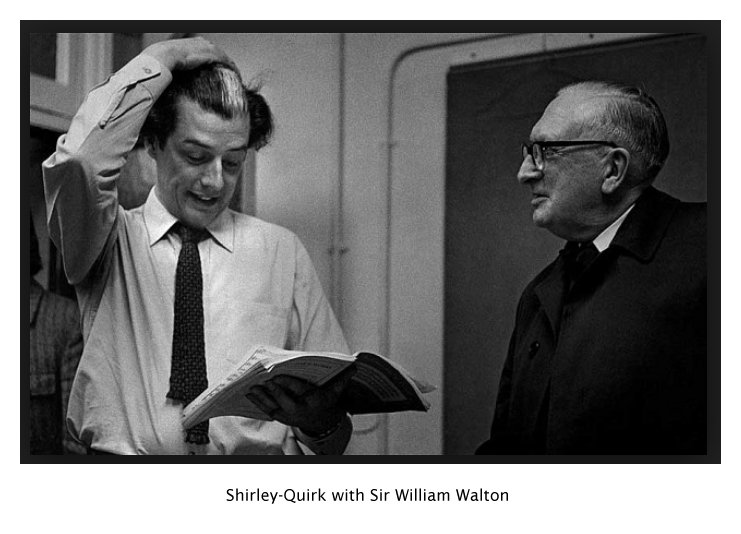 He entered the musical profession comparatively late. Born in Liverpool to Joseph and Amelia, he went to Holt school and gained a chemistry degree at Liverpool University (1952). After national service in the RAF, he taught chemistry at Acton Technical college, west London, and studied singing, first with Austen Carnegie, later with Roy Henderson. In 1961 he became a vicar choral at St Paul's Cathedral. The following year he made his operatic debut at Glyndebourne as the Doctor in Pelléas et Mélisande. After a performance of Bach's Christmas Oratorio in Ipswich in 1963 he was congratulated by a stranger who had particularly admired his singing of "the D major aria". Unknown to him, Britten had been invited to hear him and this was effectively his audition for joining the English Opera Group, which he did the following year. That successful and creative relationship culminated in Britten's final opera, Death in Venice, in which he played The Traveller (who additionally takes the part of six "nemesis" roles: Elderly Fop, Old Gondolier, Hotel Manager, Hotel Barber, Leader of the Players and Voice of Dionysus). Fashioning the latter roles – all harbingers of death – for Shirley-Quirk, Britten created a series of deft cameos with which the singer was eloquently to engage. Shortly after the composer's death he wrote affectionately of his time with Britten and his colleagues at Aldeburgh, remembering "vicious games of croquet, played to Red House rules, whirlwind table tennis which I was not quite quick enough to watch, Indian or China tea to choose from, and rich cakes for young and non-slimmers alike". The recording he took part in of Schumann's Scenes from Faust (1972) was the last made under Britten's baton. In 1975 Shirley-Quirk was able to offer the physically ailing composer a short holiday along the canals of Oxfordshire on his narrowboat. His extensive discography also included many of the staples of the English repertoire: Purcell's Dido and Aeneas, Handel's Messiah, Tippett's A Child of Our Time, Vaughan Williams's A Pilgrim's Progress and Delius's A Village Romeo and Juliet, as well as many of Britten's works and numerous songs. Elgar too loomed large in his career. In Adrian Boult's classic 1969 recording of The Kingdom, he brings to the role of St. Peter an appropriately rock-like authority but blended with humanity and warmth. Elgar's earlier oratorio The Light of Life he recorded twice, under Charles Groves and Richard Hickox. In both, his "I am the Light of the World" is a glorious affirmation, confirmed shortly after with a ringing top G where he fearlessly takes the higher option. 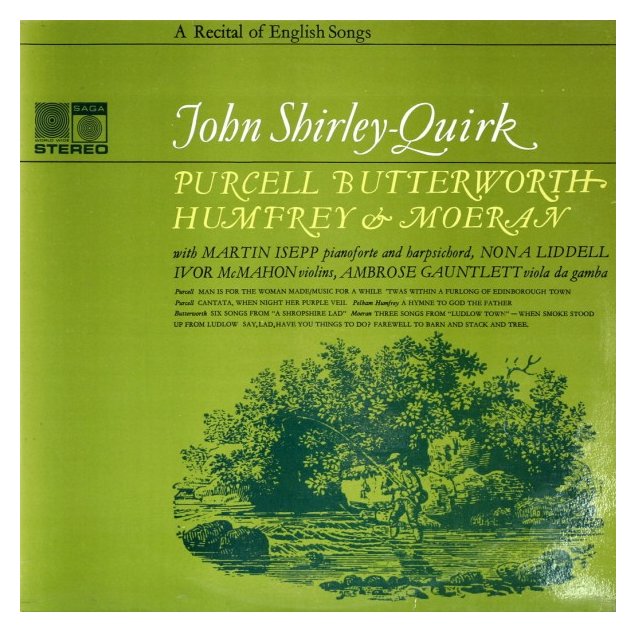 To his operatic incarnations he brought musical and dramatic intelligence. His Golaud in Pelléas et Mélisande, for example, explored the warmth of the character as well as his sadistic displays of jealousy. The genius figure of Gregor Mittenhofer in Henze's Elegy for Young Lovers he projected not as a "great man" but as an absurd, pretentious "little man". His Count in Le Nozze di Figaro (Scottish Opera, 1972) was curiously self-effacing, while in Basil Coleman's production for television (1974) he was less the aristocratic seducer than a thoughtful, frustrated intellectual – a portrayal that won considerable sympathy for the count. In Fidelio (Scottish Opera, 1977) his individual interpretation presented the prison governor Don Pizarro as neurotic rather than conventionally villainous. His Metropolitan Opera debut came in Death in Venice in 1974, and three years later he created the role of Lev in Tippett's The Ice Break at Covent Garden. To his music-making in all genres he brought elegant phrasing and a superbly schooled tone, combining them to produce a distinctive delivery suffused with humanity. He was appointed CBE in 1975 and made associate artistic director of the Aldeburgh Festival in 1982. He taught at the Peabody Conservatory of Music in Baltimore, Maryland (1991-2012), and then at Bath Spa University. His first wife, Patricia Hastie, died in 1981 and his second wife, Sara Van Horn Watkins, in 1997. He is survived by his third wife, Teresa May Perez (nee Cardoza), whom he married in 2009, and by two sons and two daughters. Another daughter predeceased him. • John Stanton Shirley-Quirk, bass-baritone, born 28 August 1931; died 7 April 2014 -- Barry Millington, The Guardian [Photos added
for this website presentation]
|
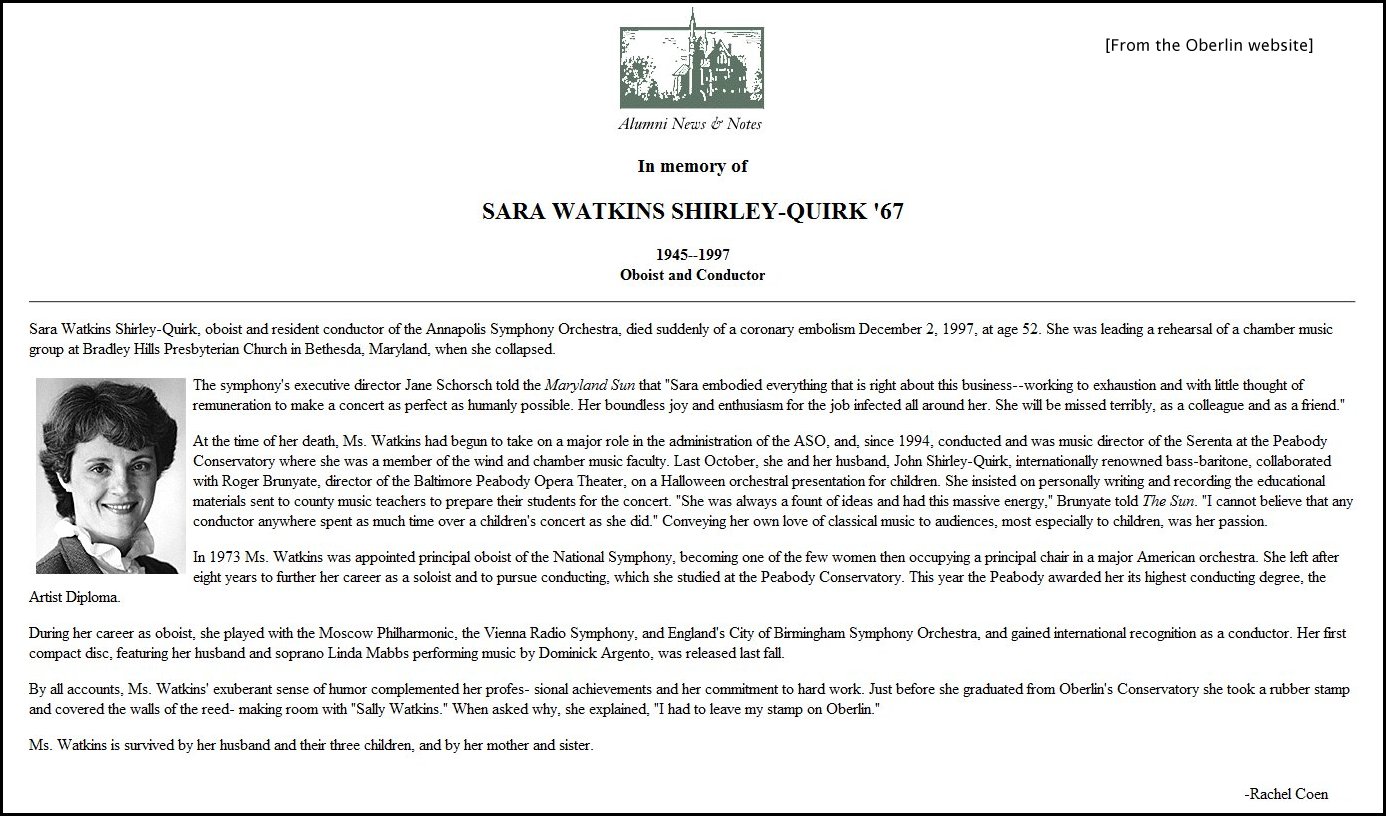
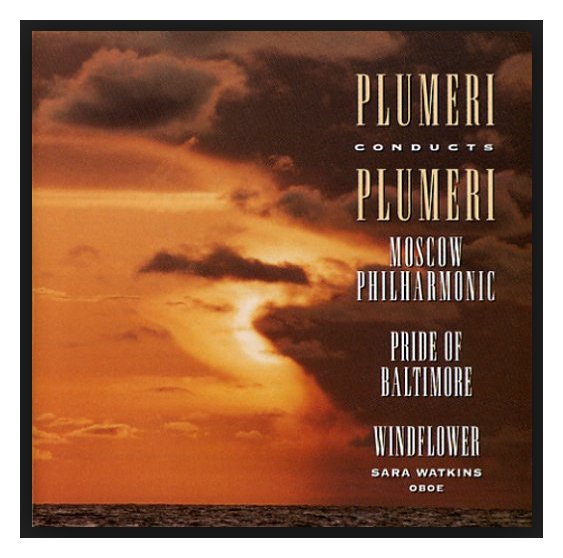 BD: Should opera be
for everyone?
BD: Should opera be
for everyone?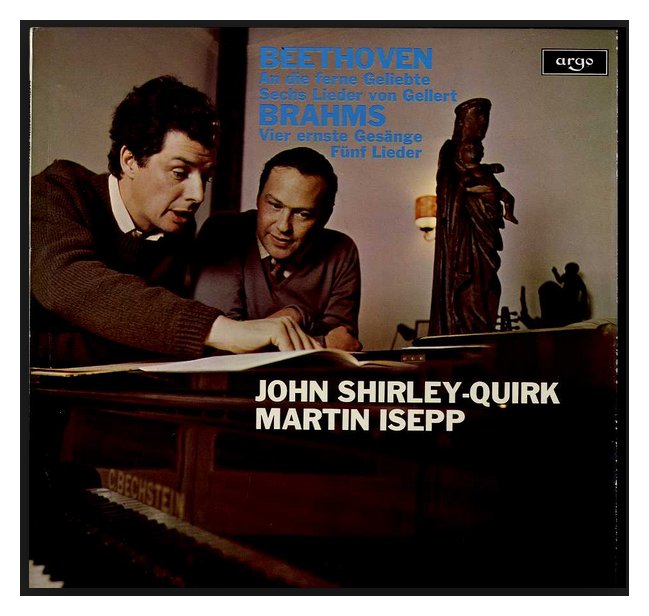 BD: It’s a feeling
you get?
BD: It’s a feeling
you get?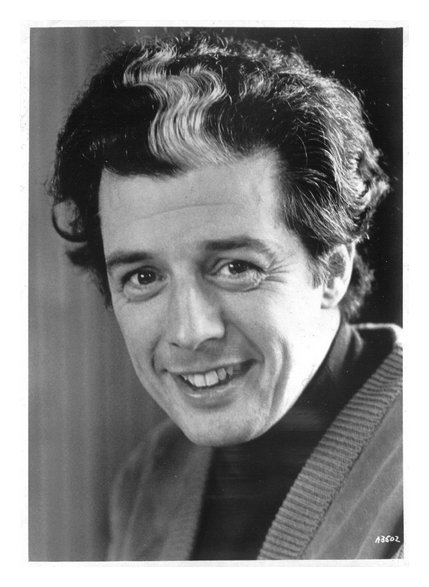 JS-Q: Eventually,
yes, I am delighted to say he was.
JS-Q: Eventually,
yes, I am delighted to say he was.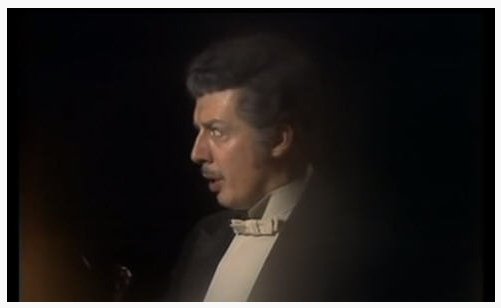 JS-Q: Well, the
first operas that I did at Aldeburgh at
all were the Church Parables.
The first was Curlew River,
and
from then the three in the series. The next one was Mr. Coyle in Owen
Wingrave [seen in photo at
right]. It was a television opera. I don’t know that
it’s
had very many performances over in America here.
JS-Q: Well, the
first operas that I did at Aldeburgh at
all were the Church Parables.
The first was Curlew River,
and
from then the three in the series. The next one was Mr. Coyle in Owen
Wingrave [seen in photo at
right]. It was a television opera. I don’t know that
it’s
had very many performances over in America here.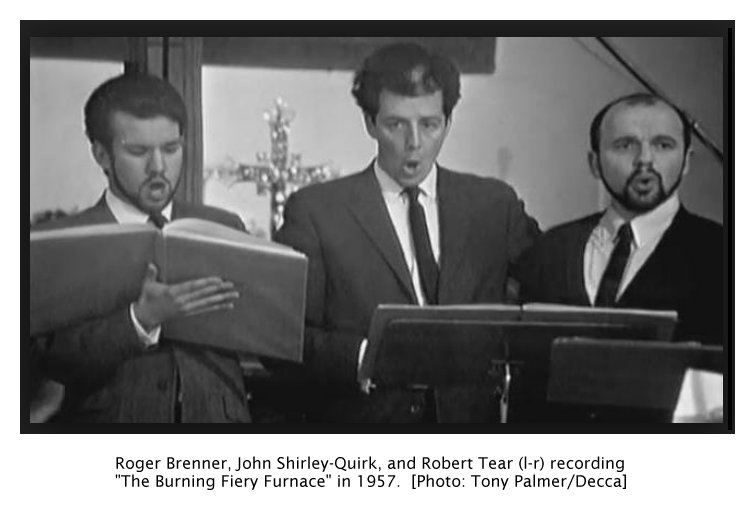
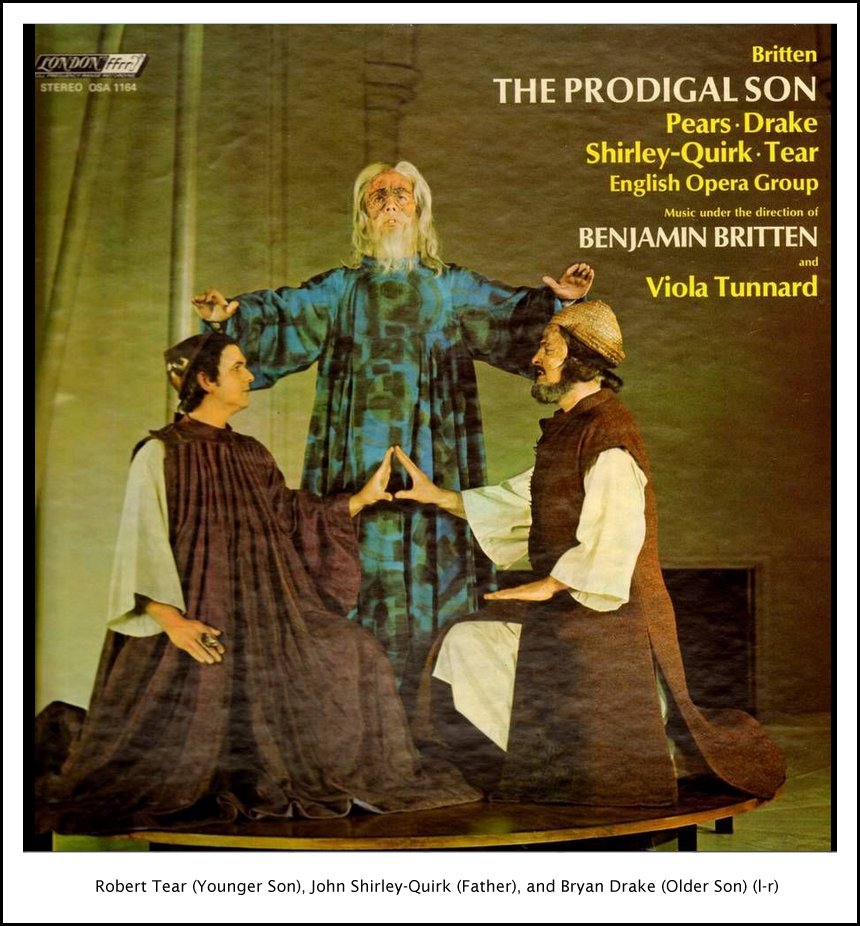
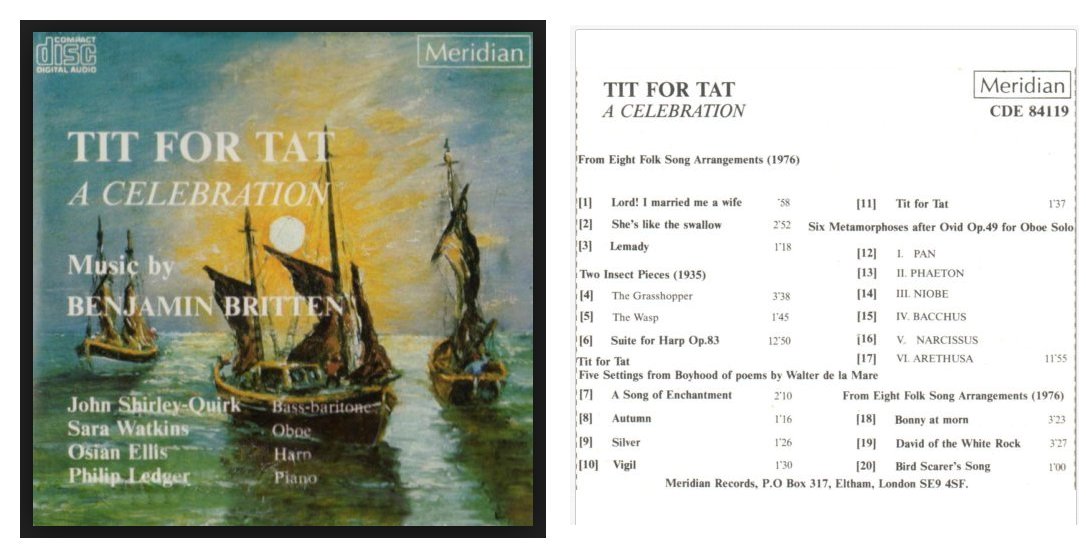
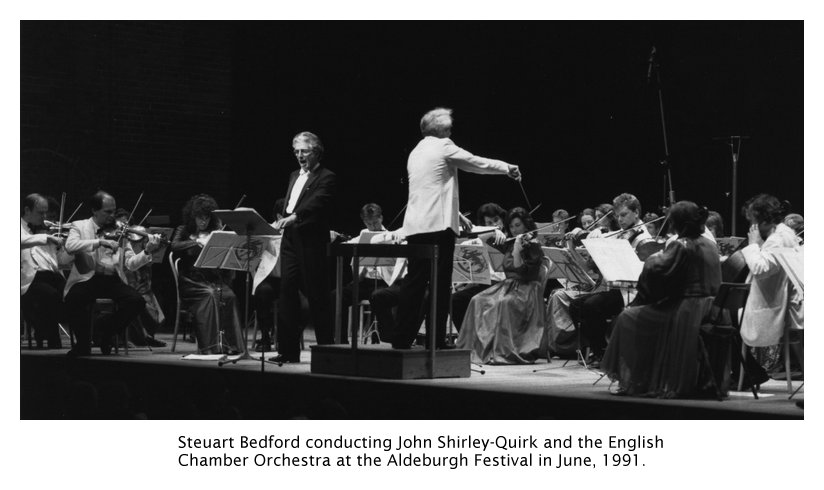
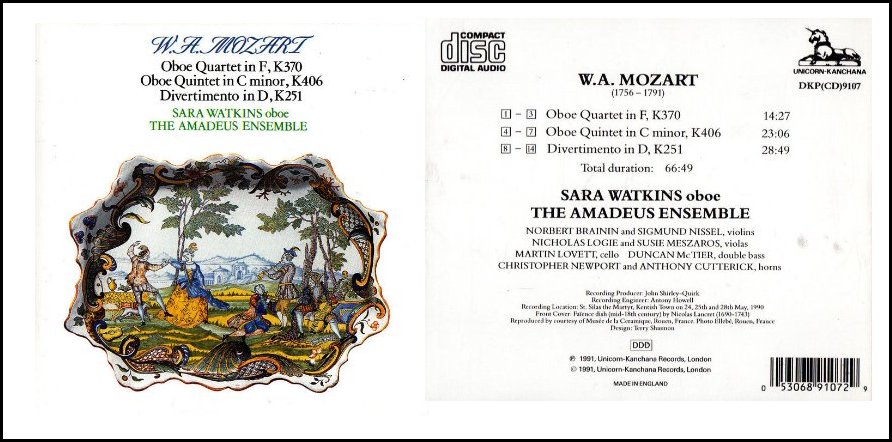
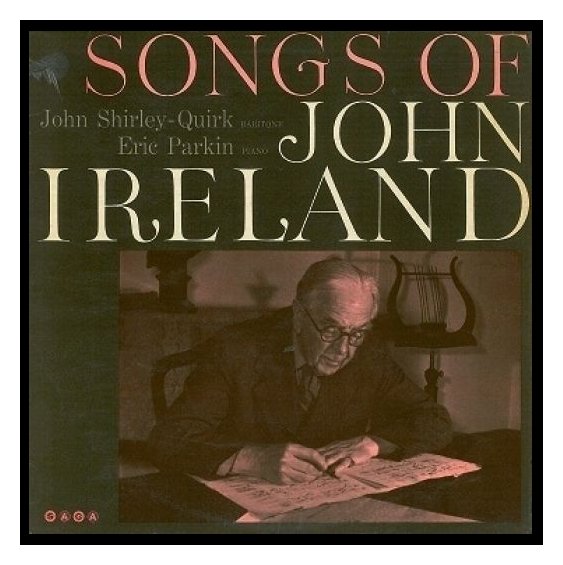 JS-Q:
[Ponders] I don’t know how I make
those decisions, really. Obviously if it’s something I feel I
wouldn’t do well and it’s
not in my nature to do or not in my voice to do, then
it’s quite easy to say, “Oh, no! No, that’s not for me now,
thank you very much!” You just pass on it. So I
don’t remember the process because it seems so obvious. If
someone came and asked me to sing
Wotan I’d say, “Oh, thank you very much for the invitation.
That’s not for me. Good-bye!”
JS-Q:
[Ponders] I don’t know how I make
those decisions, really. Obviously if it’s something I feel I
wouldn’t do well and it’s
not in my nature to do or not in my voice to do, then
it’s quite easy to say, “Oh, no! No, that’s not for me now,
thank you very much!” You just pass on it. So I
don’t remember the process because it seems so obvious. If
someone came and asked me to sing
Wotan I’d say, “Oh, thank you very much for the invitation.
That’s not for me. Good-bye!”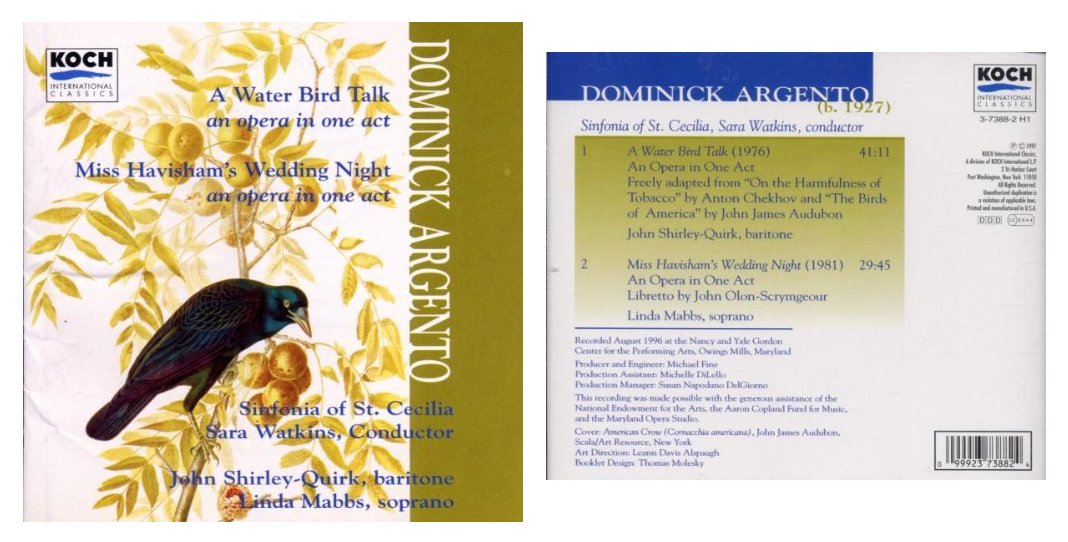
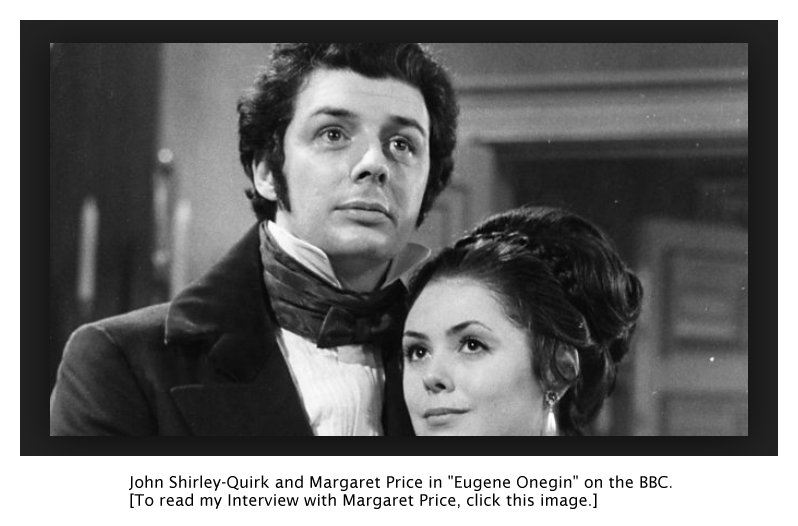 BD: Should he
get out?
BD: Should he
get out?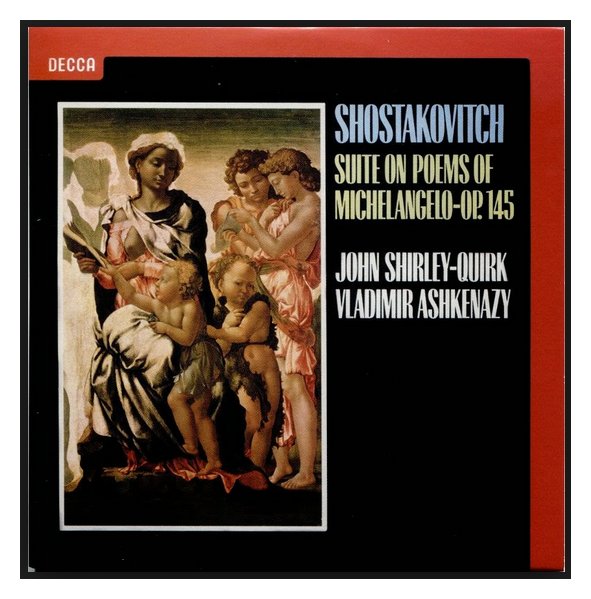 BD: Since Britten’s
death, have you learned
other works of his that he didn’t teach you?
BD: Since Britten’s
death, have you learned
other works of his that he didn’t teach you?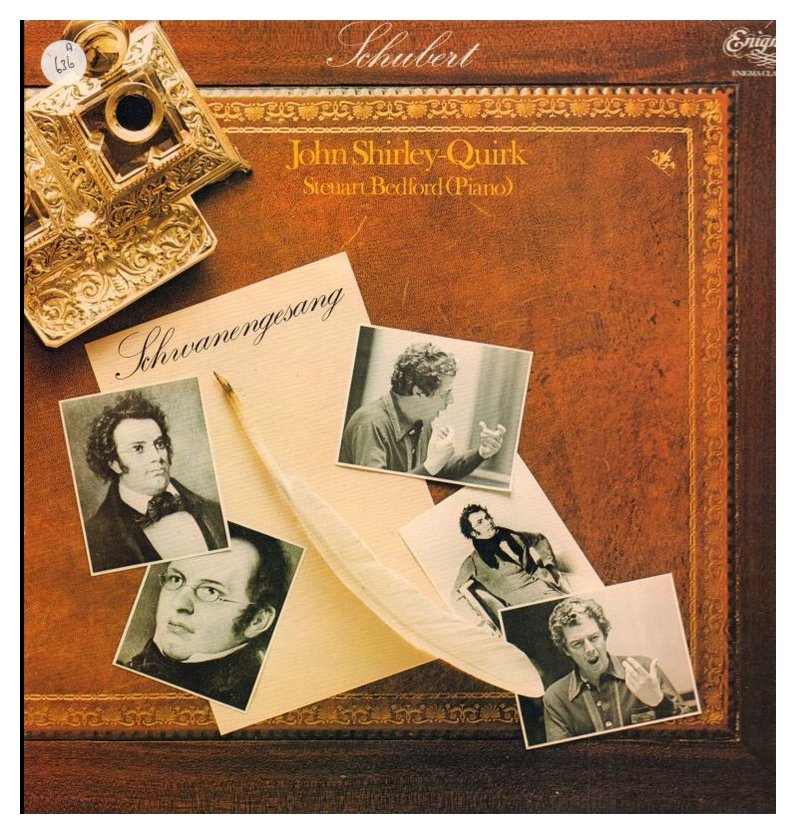 SW: Or it can be
very lonely.
SW: Or it can be
very lonely.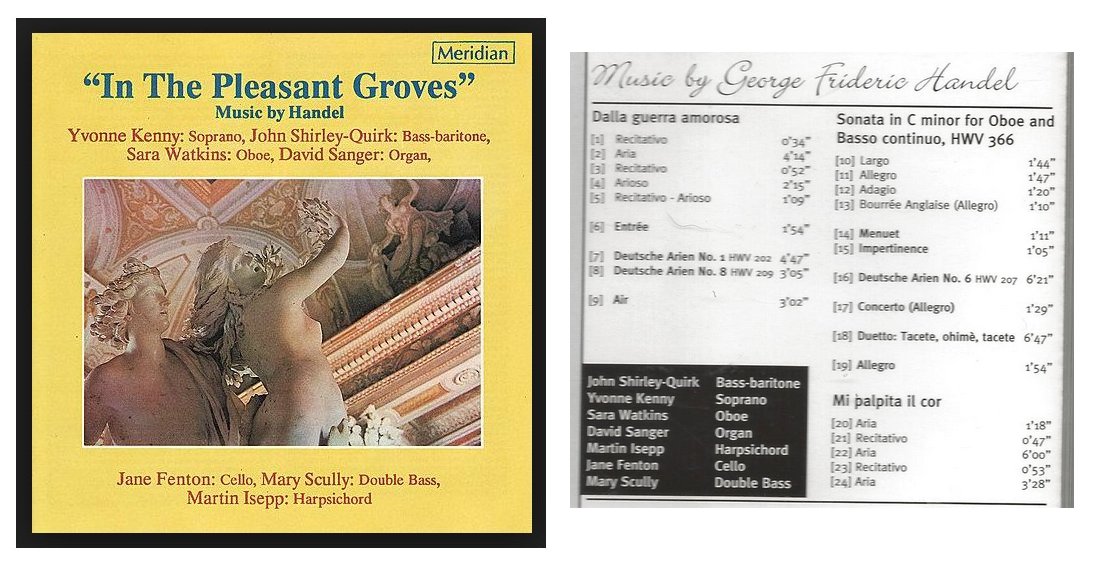
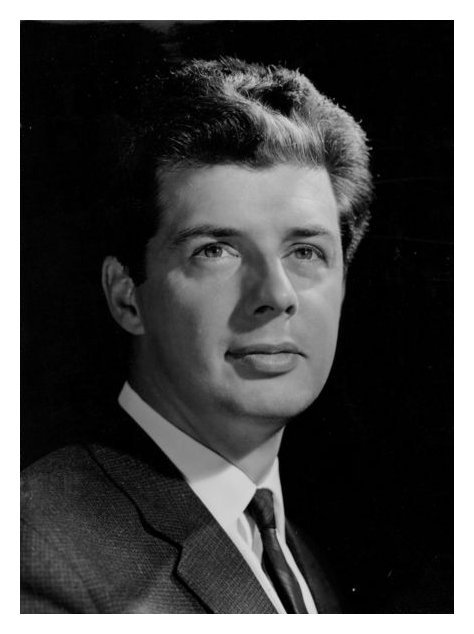 SW: I think the
criterion is
if the collage that you’ve come up with does not produce a totality
that’s believable...
SW: I think the
criterion is
if the collage that you’ve come up with does not produce a totality
that’s believable...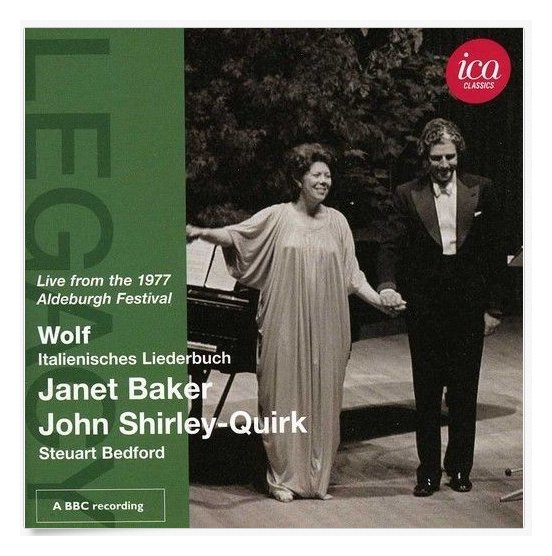 SW: Traffic!
SW: Traffic!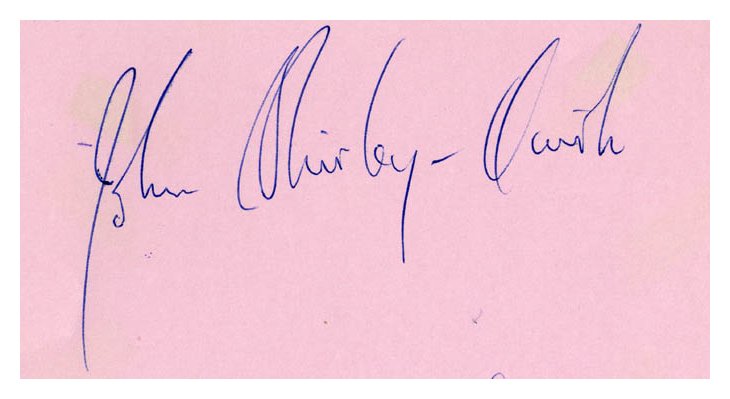 JS-Q: Thank you.
JS-Q: Thank you.John
Shirley-Quirk left a large legacy of commercial recordings.
Here are just a few which also happen to have some of my other guests . . . . . 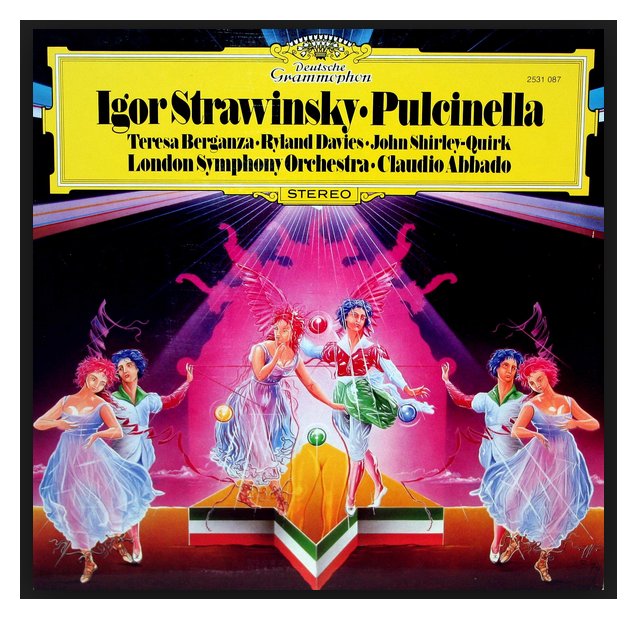 To read my Interview with Teresa Berganza, click HERE. To read my Interview with Ryland Davies, click HERE. To read my Interview with Claudio Abbado, click HERE.  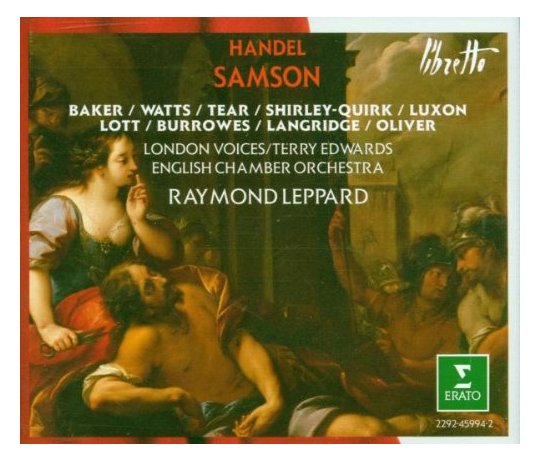 To read my Interview with Benjamin Luxon, click HERE. To read my Interview with Felicity Lott, click HERE. To read my Interview with Norma Burrowes, click HERE. To read my Interview with Raymond Leppard, click HERE.  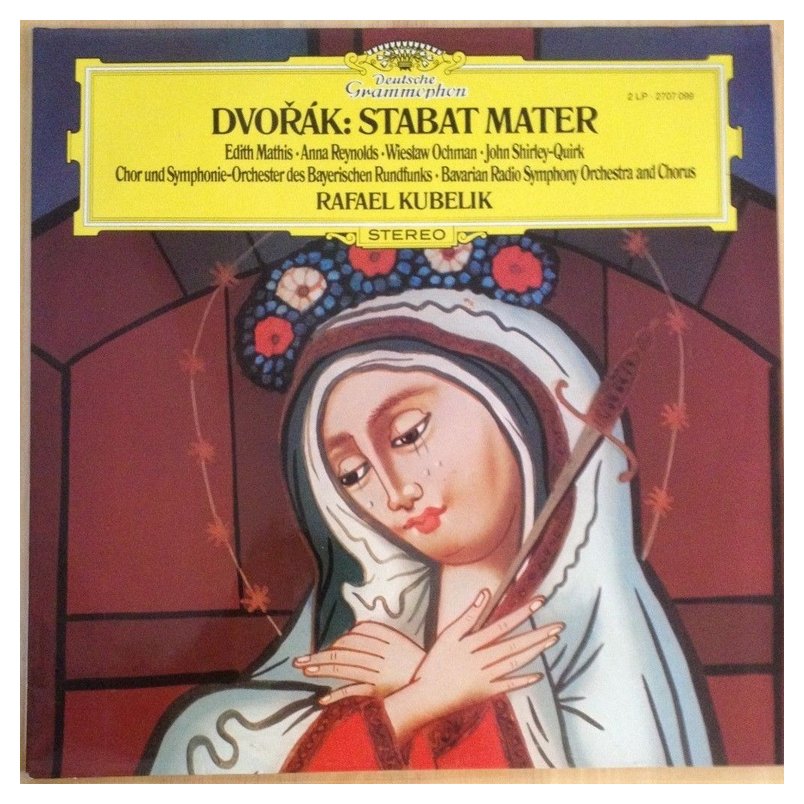 To read my Interivew with Anna Reynolds, click HERE. To read my Interview with Wiesław Ochman, click HERE.  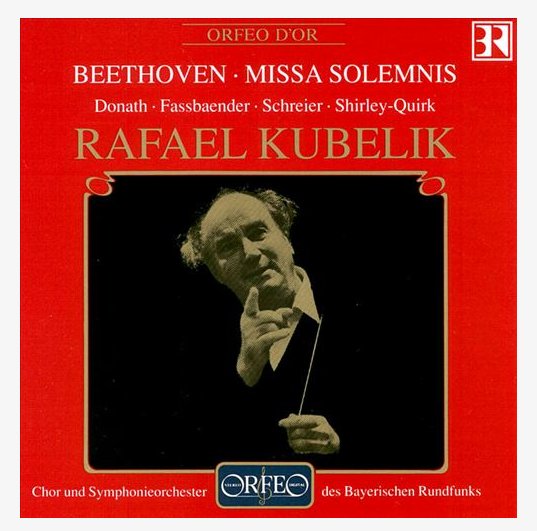 To read my Interview with Helen Donath, click HERE. To read my Interview with Brigitte Fassbaender, click HERE. To read my Interview with Peter Schreier, click HERE.  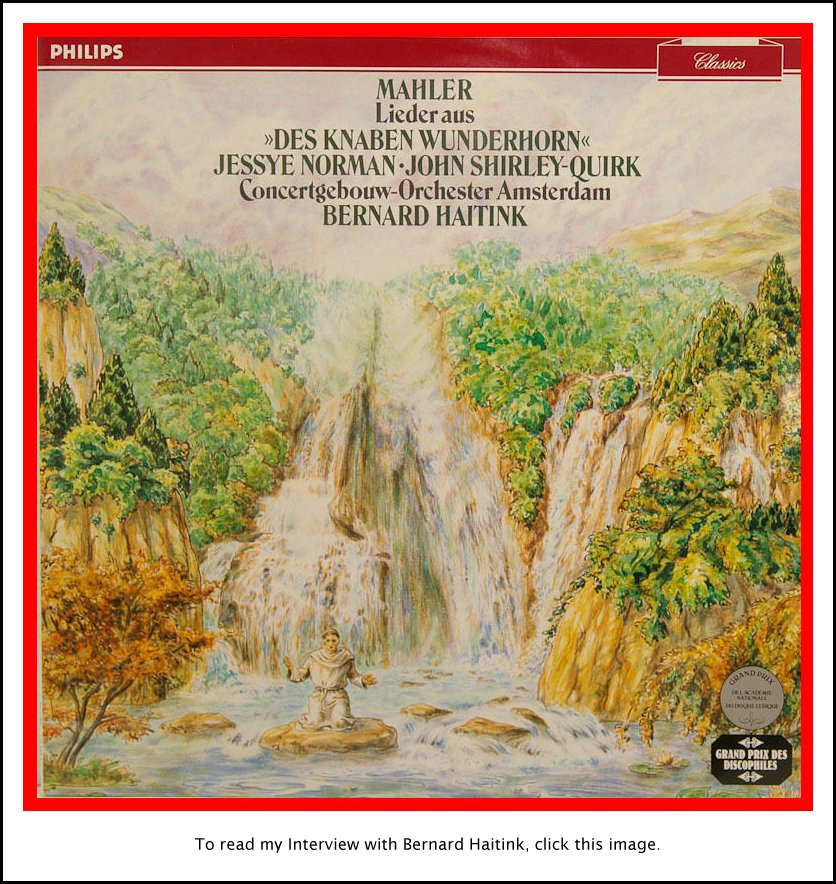  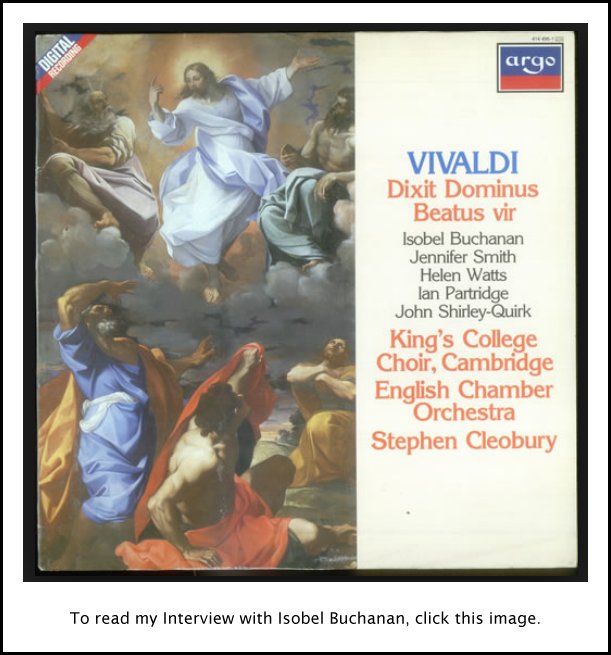  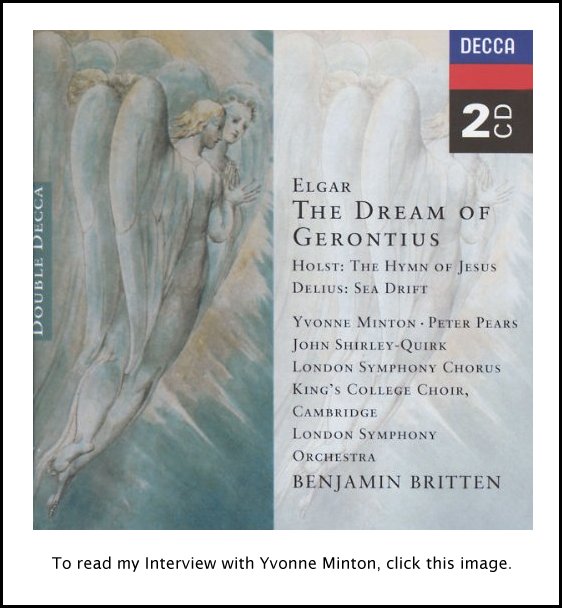  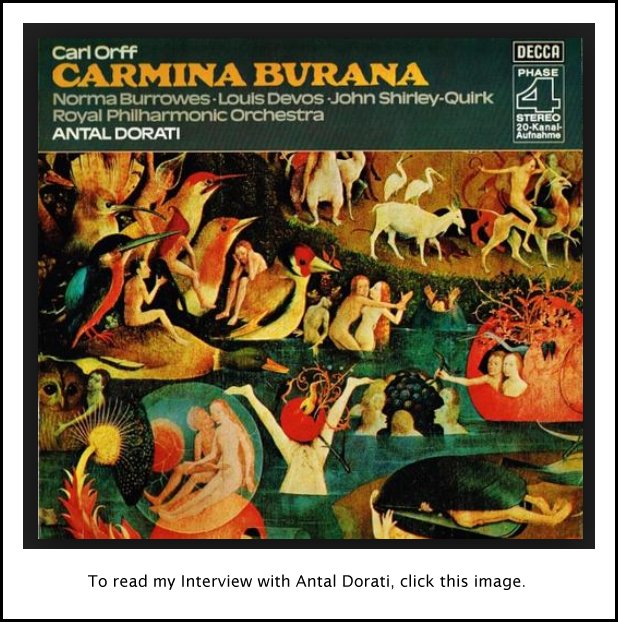  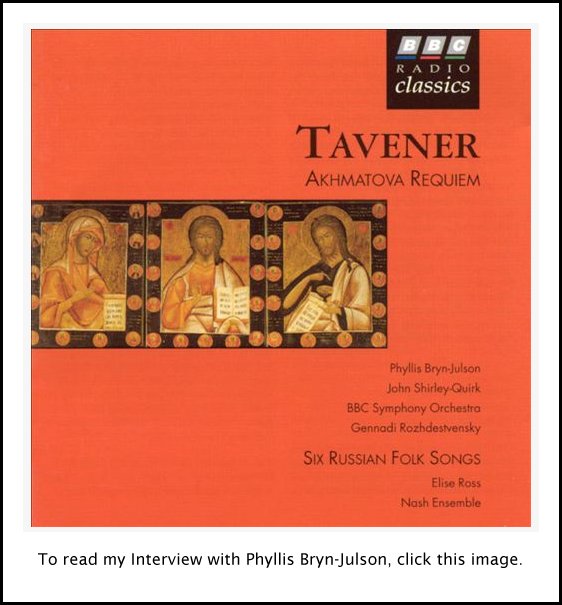  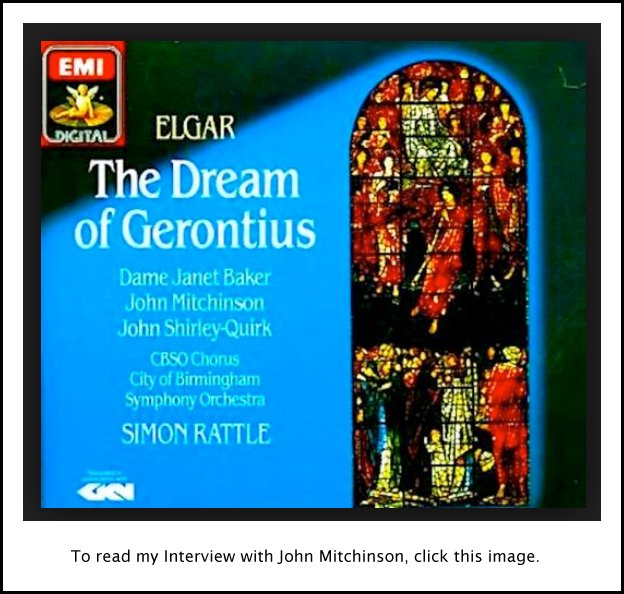  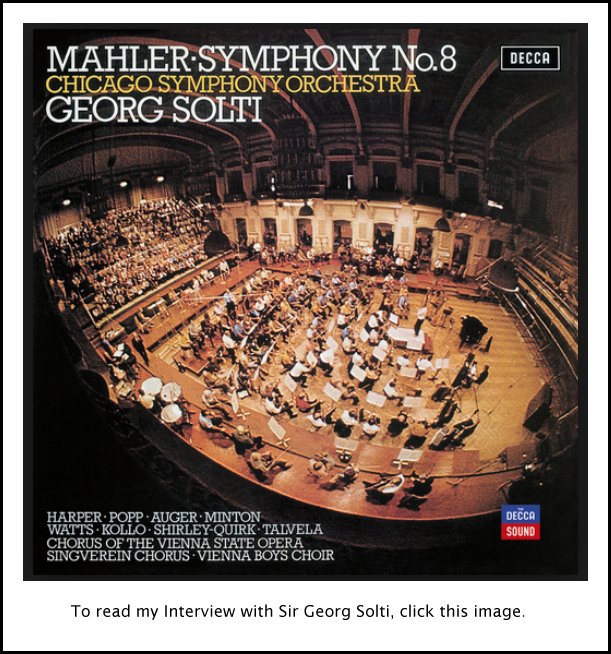  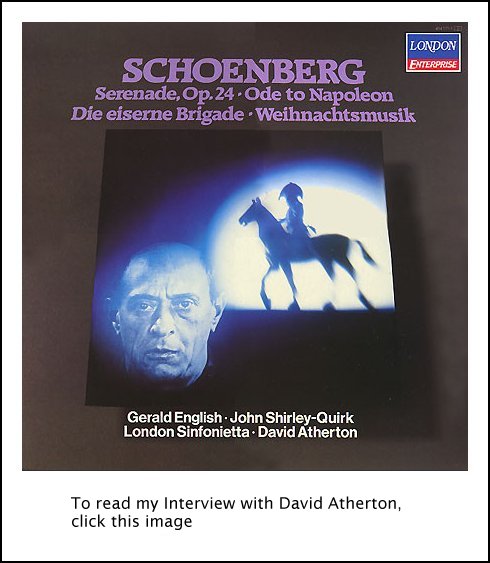 |
© 1988 Bruce Duffie
This conversation was recorded in their hotel in New York City on March 24, 1988. Portions were broadcast on WNIB in 1991 and 1996. This transcription was made in 2014, and posted on this website at that time. My thanks to British soprano Una Barry for her help in preparing this website presentation.
To see a full list (with links) of interviews which have been transcribed and posted on this website, click here.
Award - winning broadcaster Bruce Duffie was with WNIB, Classical 97 in Chicago from 1975 until its final moment as a classical station in February of 2001. His interviews have also appeared in various magazines and journals since 1980, and he now continues his broadcast series on WNUR-FM, as well as on Contemporary Classical Internet Radio.
You are invited to visit his website for more information about his work, including selected transcripts of other interviews, plus a full list of his guests. He would also like to call your attention to the photos and information about his grandfather, who was a pioneer in the automotive field more than a century ago. You may also send him E-Mail with comments, questions and suggestions.